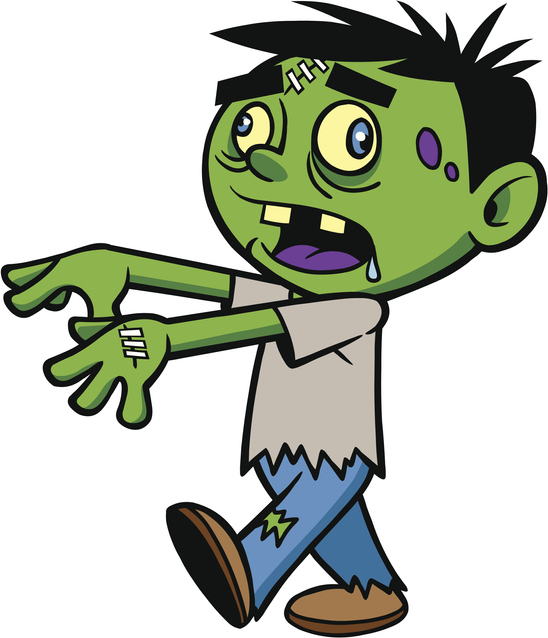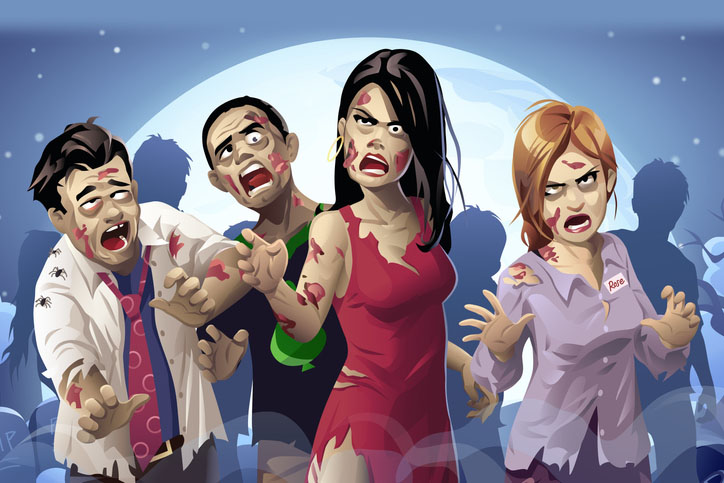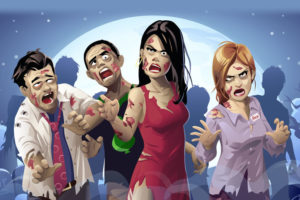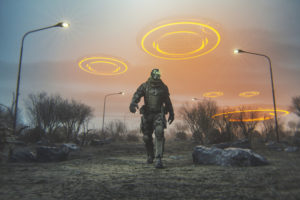If you’re a fan of horror movies or its zombie subculture, you’re probably familiar with AMC’s hit TV series, The Walking Dead, inspired by Robert Kirkman’s comic book of the same name. The series follows a group of rag-tag survivors trying to navigate a world affected by a fast-moving, virus-driven pandemic which, quite inconveniently, causes the deceased to spring back to life.
In the first episode of the series, Rick, the show’s main protagonist, wakes up from a coma and finds that, in a very short period of time, the world has pretty much gone to hell. The undead, not-so-affectionately referred to by the survivors as “walkers”, are driven by an insatiable need for blood and flesh, and are terrorizing the living. The world economy has ground to a halt, once-bustling cities are completely deserted, and there is a sense of hysteria and panic, with survivors taking to hoarding guns and other weapons just in case things get even worse. Wait, why does that sound familiar?
The world is facing an unprecedented economic crisis as a result of the COVID-19 pandemic. Fortunately, there haven’t been any recorded incidents of COVID-19 zombies. But, like the virus that led to the undead apocalypse in the TV series, the COVID-19 virus has spread across the world. In its wake, the streets of once-busy cities are empty and economies are taking a hit. Companies in virtually all industries are shelving plans for expansion, cancelling all new expenditures, slashing budgets and, in many cases, laying off staff. But, despite these survival tactics, companies are grappling with the reality that their businesses just may not survive the COVID-19 onslaught.
In the television series, pretty soon after Rick wakes up from the hospital, things go from bad to worse. In addition to desperately trying to avoid the walkers, Rick and his not-so-merry band of survivors now have to avoid humans who have taken to looting, stealing and killing to make ends meet.

In one memorable episode, Rick’s group of survivors are facing particularly desperate straits. Rick, frustrated by the group’s plight, tells a story about his grandfather who fought in a war. Rick tells the group that, when he was a kid, his grandfather told him that to survive the war, he convinced himself that he was dead the minute he stepped into enemy territory. Every day, Rick’s grandfather got up and said “Rest in peace. Now go to war”. Rick ends his story by declaring that “We are the walking dead”.
Up until this time, viewers naturally assumed that the title of the show referred to the undead who were stalking the living. Now, viewers are forced to wrestle with the fact that the show’s title may be a reference to the fact that it is actually the survivors who are the walking dead. The survivors, it would seem, are simply biding time until they meet their fate – death! Talk about a reality check! Like Rick in the TV series, there is a sense of foreboding among many in the business community that, as a result of the COVID-19 pandemic, they are all just awaiting the inevitable and that their businesses are, in fact, the walking dead.
When Rick ends his somber story about his grandfather with a declaration that “we are the walking dead”, Daryl Dixon, one of the survivors, defiantly whispers “we ain’t them!” Daryl, it would seem, even in the face of the undead pandemic that has claimed billions of lives, refused to give up. His simple, three words of defiance, “we ain’t them!”, causes Rick, the leader of the group, to recalibrate. After a few seconds, Rick agrees with Daryl. “We’re not them. We’re not,” he solemnly vows. Rick, the leader of the group is back on track, determined to lead his team safely through the pandemic.
Now, back to what humanity is facing in real life. Despite these challenging times, there is hope! If we take a look at history, we will recognize that mankind has survived several seemingly insurmountable health crises. Although epidemics like the Spanish Flu, The Black Plague, the Bubonic Plague and H1N1 Swine Flu all caused unthinkable harm, after some time, the world recovered. Chances are that, as a result of global travel bans, social distancing and the hunt for vaccines, we will recover and things will return to normal – even if it is, as the saying goes, a new normal.
As the COVID-19 pandemic continues its destructive path, the businesses with the best chances of keeping their doors open throughout the pandemic will be the ones with the most “Daryls” on their teams. The entrepreneurs, business owners and business decision-leaders who are tasked with leading their organizations during this health crisis will face crippling decisions that will have tremendous implications for their staff. They will have to answer questions like “Will I have to lay off staff and, if so, which team members will add the most value during this crisis?” Making decisions like this can be debilitating, and some leaders, like Rick, may lose hope, even if temporarily, and declare “we are the walking dead.”
In such cases, we need to turn to the Daryls on our teams for their defiance and their refusal to give up. The Daryls we turn to may not be a part of the C-suite, have a fancy title or even have a business card. But, because they understand that there is hope, they are the ones who can inspire us, even in the face of seemingly insurmountable odds, to keep pushing forward,
At the end of this global crisis, the business that survive will be the ones who defiantly say, “we are not the walking dead!” and do what is necessary to ensure the continuity of their operations. The question we all have to ask, in these uncertain times is, “Am I Daryl Dixon?”




